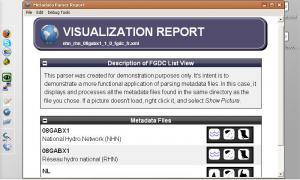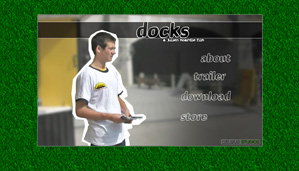My last post to this blog was more than a month ago. I do believe this is the longest I’ve ever gone without posting. This absence is also highly reflective of the state of affairs on my end in general.
I’ve been busy. Very, very, busy. In any odd week I would go to school full-time, go to work full-time (45 hours/week), work on completing my thesis, and finish off some work for the Shared World Initiative. Needless to say, Docks has been put on the backburner.
So what’s the thesis about? Well, it focuses on an application I’m designing, with the extremely original name of the “Metadata Parser.” What it does is that it takes GIS XML metadatafiles using the FGDC standard and presents their text-heavy contents in a simple pictographic layout. The idea is that it’s much easier to identify critical characteristics of a metadata file by looking at a few pictures than by sifting through reams of lingo-heavy text.
I coded a tech demo, which parses through single individual files. My hope is to design a second application (or plugin for the first… yes, it supports plugins) to list directories worth of metadata. If you want to try it out, you can download the parser for yourself here (Windows, 8MB.) Sample metadata files are included with the installation.
Screenshots:
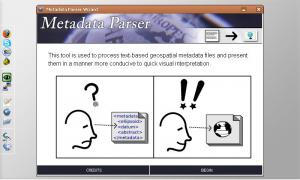
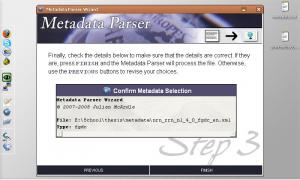
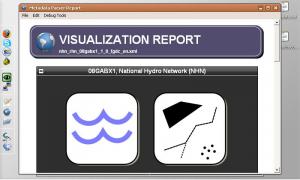
In other news, the LCD on my 300MHz laptop had been going wonky for some time. So I got myself an Eee PC last month. Fantastic machines. You can read a review of them that I wrote here.
